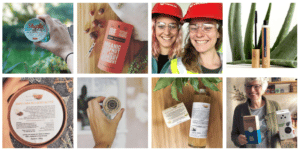Why I am fighting against plastics and you should too
Every year 8 million tonnes of plastic enters our oceans through our rivers. But it’s not just our oceans, its all over our land, in our cities, our countryside, even in the world’s most remote places, like the Arctic. Plastic particles are washed out of our clothes, our toothpaste, and even from our car tyres into the food chain. It’s in our food, in our water and in the air that we breathe.
It’s been estimated that humans have roughly a credit card’s worth of plastic inside them. Did you hear about the whale found washed up with 40kg of plastic in its stomach in the Philippines? I don’t want that to be me.
I first started making plastic free changes in 2018, just before I travelled to Nepal with Raleigh. I started small – I traded a shampoo bottle for a shampoo bar.
Travelling to a country where waste management isn’t their primary concern opened my eyes to the scale of the problem. My host family in rural Nepal grew all their own vegetables, but that didn’t stop many people buying tiny plastic packets of shampoo, plastic packets of sweets, plastic biscuit packets. With no where to put the waste, much of it ends up in the corn fields, in the vegetable patches, on the roads and in the rivers.
My time in Nepal taught me two major things:
- Plastic waste is a bigger issue than I realised
- We all need to take action to live a simple, plastic free life
Since returning, I’ve tried to remain an active citizen and make changes in my community.
With my sister, I started an online plastic free shop: Life Before Plastik. We raise awareness about plastic through our social media platforms and sell products to make going plastic free easy. We are fighting against the tide of plastic by providing items such as plastic-free shampoos and conditioners, washing-up liquid, to laundry bags stopping microfibers and reusable coffee cups.

What changes can you make?
My biggest advice for eradicating plastic would be to start small, take it step-by-step, and think how you can swap out plastic in your home per room. For example, swap your toothbrush for a bamboo alternative, then your toothpaste and other bathroom items, before moving on to products in your kitchen.
Why should you make any changes?
While the science isn’t clear about what plastic inside us does, stories of whales and bird dying are enough to know it’s not good for us. All plastic ever produced is still with us today, some of it travelling huge distances across the oceans and carrying bacteria from continent to continent.
The global governments are trying to protect life on land and below water through the sustainable development goals, but it’s not just up to them. If individuals, friendship groups, communities, cities make changes, there will be no need for global governance.
Every individual can make a difference, and it’s up to us to change what our future looks like. I hope it’s plastic free.
Is there an important issue that you are passionate about? We are dedicated to sharing youth voices on the issues that affect young people around the world. If you would like to write a blog for us, get in touch at alumni@raleighinternational.org